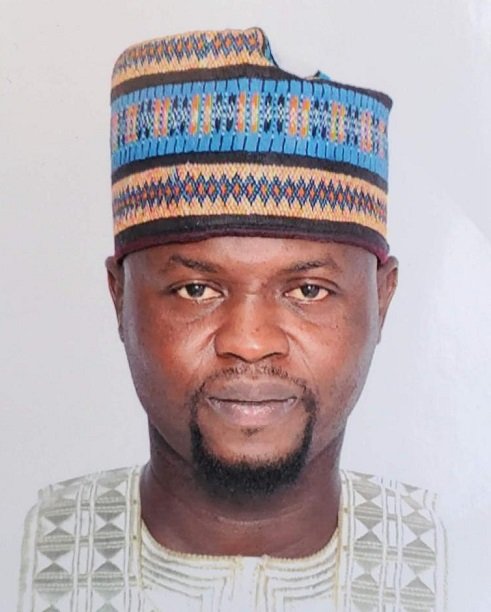I firmly believe that “it is natural for every group of people to have a leader or, at the very least, someone who can act on behalf of the majority in the absence of a universally recognized leader.”
This is where the United States of America stands today.
Whether we like it or not, for much of the 20th and 21st centuries, the United States has taken the mantle of global leadership; economically, politically and militarily.
In my previous article titled “I choose peace over democracy” I asserted that “Nothing equates to the loss of a single life and peace of the people -not even the full gains of democracy over the rule of law and peace.”
Now, I want to explore what responsible global leadership should look like in the context of the Russia-Ukraine conflict, a war that has gripped the world’s attention.
The current state of the war
To objectively discuss this war, we must look at its current state, its origins,and what the future may hold.
America’s influence on world affairs is undeniable. It has long been regarded as:
1. The global “cop” on human rights and the rule of law.
2. The champion and enforcer of peace and democracy.
However, these roles have been tested in recent years, particularly during the aftermath of the 2020 U.S. elections and the ongoing Russia-Ukraine war.
What happened?
The 2021 insurrection at the U.S. Capitol briefly tarnished America’s image on the global stage. However, the swift actions of independent law enforcement agencies helped restore confidence in the nation’s commitment to democracy and the rule of law.
In the case of the Russia-Ukraine war, the root cause lies in the security concerns of a superpower i.e Russia. No global power, whether China, Great Britain, France or the United States, would tolerate military hardware or defense alliances perceived as adversarial being stationed in their backyard.
Missed Opportunities for Peace
Negotiations reached a deadlock in 2022 due to complacency and mistrust among leaders. Today, Ukraine has suffered staggering losses in human lives, territory, and infrastructure. While Russia has also incurred losses, its territorial integrity remains intact.
Ukraine, with NATO’s backing, rejected Russia’s initial peace offer at the start of the conflict when losses were minimal. Now, over two years later, the same offer stands, but with additional conditions from Russia. Tragically, the cost of delay has been immense.
The U.S., with its unparalleled influence, could have played a more decisive role in averting this humanitarian catastrophe. As Helmut Schmidt once said, “It is better to negotiate for 100 hours about nothing than to shoot for one minute.”
A shift in global dynamics
The failure of NATO to weaken Russia economically, politically, and militarily has inspired countries, particularly in Africa, to seek partnerships with other powers. Russia’s backing of military juntas in West Africa and its support for Bashar Al-Assad in Syria have showcased its willingness to challenge Western dominance.
For some African nations, aligning with Russia offers a semblance of security — akin to a child sheltered by its mother.
The Trump factor
The re-election of President Trump in 2024 has introduced a new wave of global expectations:
1. An end to major wars through peaceful negotiations rather than further violence.
2. A systemic overhaul in governance, with policies aimed at benefiting electorates worldwide.
While some Africans, especially those in the diaspora, express skepticism about the impact of Trump’s return, I see it differently. His policies could catalyze global stability and inspire reforms in governance.
Already, the rhetoric of many leaders who once advocated for increased military aid to Ukraine has shifted toward calls for peace talks — a testament to America’s profound influence.
Lessons for the future
1. Avoiding war with superpowers: No nation, regardless of its alliances, should engage in conflict with superpowers like the U.S., Russia, or China. Such wars are not only unwinnable but suicidal, given these countries’ vast nuclear arsenals. In my limited observation, Lack of moral grounds and universally acceptable justifiable reasons coupled with the fact that the territorial integrity of the invading forces in the invasions of Iraq, Afghanistan, Libya and Syria were not threatened made it difficult to win those invasions.
2. The need for negotiations: Peaceful dialogue must always take precedence to save lives, property, and the world at large.
3. Global responsibility: The actions and inactions of opposing blocs like NATO and Russia affect not just their citizens but the entire world.
As Africans, we observe these global events with a blend of historical insight and economic vulnerability. Our colonial past and current struggles have taught us to tread cautiously and pragmatically on the global stage.
A call for African self-reliance
The “Ghana Beyond Aid” agenda should not only inspire Ghanaians but the entire African continent. By adopting policies rooted in self-reliance, Africa can reduce its dependence on external powers.
In conclusion, America has a unique opportunity to reset its global image and work collaboratively with other superpowers like China and Russia to ensure a balanced and peaceful world order.
As President Trump famously declared, “Promise made, promise kept.” I urge him to stay true to his words and prioritize peace in his administration.
The events of the past serve as a stark reminder of the consequences of complacency and poor decision-making. Let us hope the future holds better outcomes for the World, Insha Allah.
The writer is Eminent Member and Chairman of the Finance and Fundraising Committee of the Greater Accra Regional Peace Council, National Peace Council of Ghana (NPC)
BY ALHAJI KHUZAIMA
MOHAMMED OSMAN

